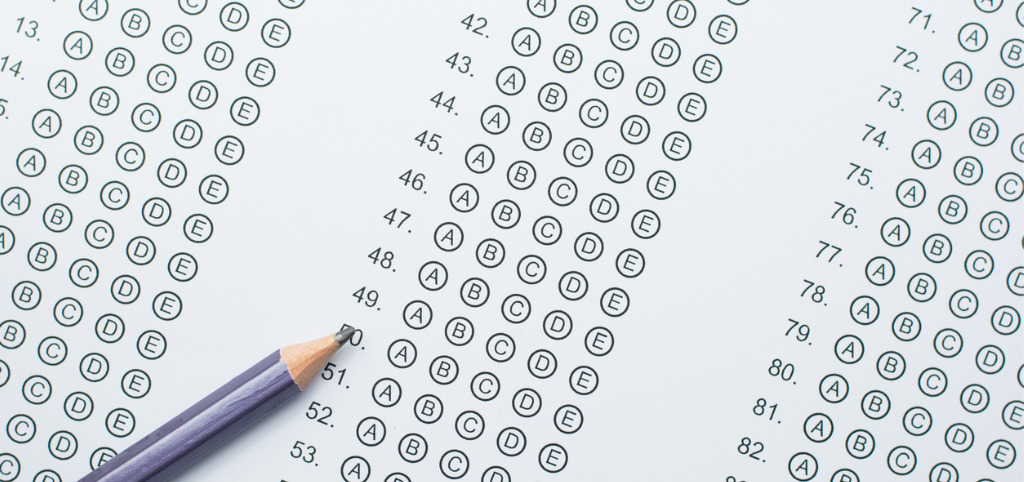The COVID-19 pandemic has had a profound effect on higher education. As students were sent home to shelter in place to prevent contracting or spreading COVID-19, classes went online and university resources, such as career counseling, followed suit. Those paying attention to higher education policy theorized that the uncertainty could make competitive colleges easier to get into, with institutions moving to online recruiting to make up for canceled college fairs and the inability to visit high schools. But the biggest change yet, and the most consequential for admissions, is the overhaul of testing requirements.
Given the difficulties of administering a fair or adequately proctored SAT or ACT exam online, and the impact that stay-at-home orders had on in-person ‘test prep’ classes, many colleges and universities made standardized tests optional. The National Center for Fair and Open Testing (FairTest), a standardized testing watchdog, stated that since early June, 1,240 institutions went SAT and ACT optional for 2021 applicants. Seven of the eight schools in the Ivy League made the exams optional or de-emphasized them in their admissions processes. Meanwhile, the California Institute of Technology placed a two-year moratorium on accepting test results. The University of California System, which educates more than 200,000 undergraduates, made the broadest and boldest adjustment, going SAT and ACT optional through 2022.
Standardized subject area exams, such as Advanced Placement (AP) tests, also faced difficulties in their transition to online formats. Despite the College Board’s insistence that issues with its exam administration were few and far between, many families were unable to submit their tests. A petition on Change.org requesting that the College Board provide opportunities to re-submit exams amassed more than 30,000 signatures. The organization acquiesced and provided an online portal for students to re-submit their exams. Subject tests have also faced other issues, such as allegations of poor test quality. Some of these complaints motivated a class-action lawsuit against the College Board. Altogether, many are seriously questioning the validity and quality of results from subject tests this year—and rightfully so.
Though the current issues with the exams have received wide coverage, there are a few strong arguments in favor of standardized tests. Research conducted in the mid-2000s found that ACT scores are more predictive of students’ freshman year GPAs than their high school grades. Proponents of the SAT and ACT argue that secondary-level grading systems vary greatly in rigor, weighting, and construction. Others cite rising grade inflation, which makes high school GPA an unreliable harbinger of future academic performance. Proponents of standardized tests assert that they level the playing field for underprivileged students whose transcripts do not include prestigious names and whose families cannot afford to fill their calendar with extracurricular activities.
Notwithstanding serious problems with relying solely on high school transcripts, recent studies point to critical flaws with the major standardized exams. The University of California System released an institutional report in January that may have informed its decision to go test optional for the next few years. While the report backs up evidence about tests’ predictiveness of first-year GPAs, it finds that test scores cannot forecast graduation rates or performance across all four years of college. The report also determines, interestingly, that the SAT is “biased against students from disadvantaged backgrounds,” suggesting that the test is less predictive of the success of students from minority or working-class backgrounds.
Ultimately, the problems with administering accurate admissions tests and subject tests this year have brought attention to the fundamental flaws with standardized testing in general. The inability of the College Board and other groups to adapt suitably the SAT and ACT to an online platform and adjust their grading process to such platforms suggests that their longevity may be in jeopardy.
The only way to tell for sure whether standardized exams are completely dispensable is by going without them, as many colleges are doing in the wake of COVID-19. However, if past research predicts anything, this ‘trial by fire’ of standardized tests will not end when researchers collect GPA results from the class of 2024. It will take years until data are available on success across these students’ college careers. When this information is available, and test-free admissions schemes can be compared to results from other admissions systems, it will be possible to make a balanced judgement about the value of the standardized test.
Leo Thuman is an academic affairs intern at ACTA and a senior at Case Western Reserve University.
